#Andrew Davies
Photo
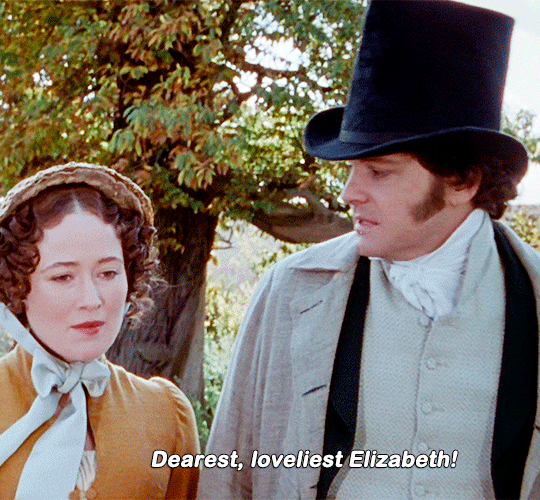
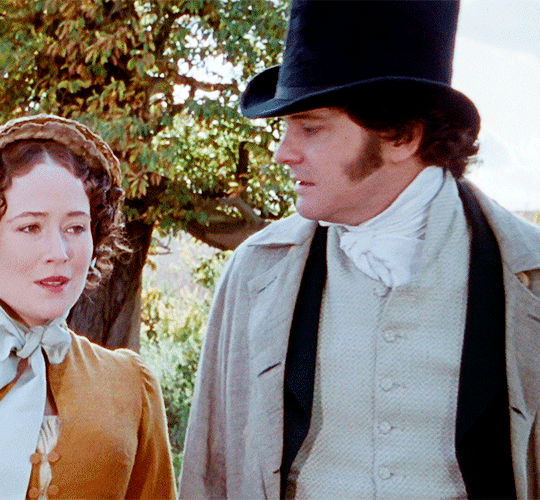
PRIDE AND PREJUDICE (1995)
#tvedit#perioddramaedit#pride and prejudice#gifshistorical#adaptationsdaily#usertelevision#romulusnuffles#userclayy#usersavana#userlindir#usermandie#userjack#userpavlova#tuserlou#duchessofhastings#usergiles#tusereste#andrew davies#1990s#by tha
1K notes
·
View notes
Text
You’re telling me there’s a BBC period drama television series with Cillian Murphy and Matthew Macfadyen that I’ve never heard of??
I know that the novel this is based on was written by a man, but the screenplay was written by the man who gave us the Colin Firth 1995 Pride and Prejudice, and these characters are being played by men who are literally written for women, so my question is - how did people survive this???
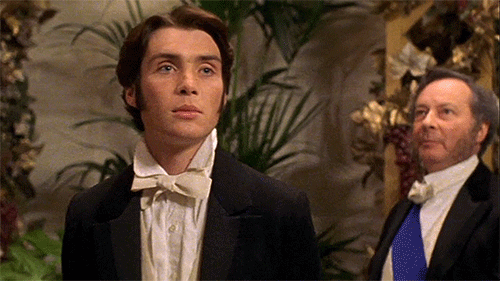
I want to say ‘it’s the sideburns for me’ but I genuinely just am so floored that this exists. There is no time for jokes.
I guess I know what I’m doing this week, then.
#the way we live now#cillian murphy#I was making my way through his film catalogue and somehow stumbled upon this what even#literally wanted to do films before I even looked at series#this is absolutely a priority for me now#matthew macfadyen#literally mr darcy are you kidding me#I need to finish succession#Shirley Henderson#literally moaning myrtle#David Bradley#David Suchet#Poirot#Agatha Christie’s Poirot#David Yates#Andrew Davies#bless this writer forever#bbc series#Anthony Trollope#wow the early 2000s was really all about men
37 notes
·
View notes
Note
This is Mr Darcy/Colin Firth propaganda I guess? but really I'm submitting it for the anecdote about Colin Firth only being given the first 3 scripts to begin with - which end with the first proposal so he thought that he wouldn't be in the rest of the series because he hadn't read the book (he did then go and read it and all the other austens and loved them according to AD) and they had to be like err actually yeah you really are
https://www.bbc.co.uk/iplayer/episode/m001tvcy/andrew-davies-remembers-pride-and-prejudice
(i can only find it only bbc iplayer so sorry for the non-uk/non-VPN voters)
I've watched this and would recommend!
Mr Darcy (1995) Vs Mr Darcy (2005)
21 notes
·
View notes
Text
I'm glad that the 2017 Beauty and the Beast remake exists. It's flawed, but fascinating.
Still, a part of me wishes that the movie Emma Watson originally signed up for in 2012 had been made: an adaptation of Robin McKinley's Beauty, produced by Warner Bros., directed by Guillermo del Toro and with a screenplay by Andrew Davies.
Not that I would have entirely trusted Andrew Davies with the material: he would probably have added needless sex appeal and gender essentialism. But it would definitely have been an interesting movie. And apart from being too beautiful for the earlier scenes, Emma Watson would have been very well cast as McKinley's Honour "Beauty" Huston. Arguably more so than she was as a questionably "updated" version of Disney's Belle.
If there's an alternate universe where that movie was made, I would love to visit it!
#beauty and the beast#fairy tale#unmade movies#emma watson#beauty#robin mckinley#guillermo del toro#andrew davies#what could have been
27 notes
·
View notes
Text

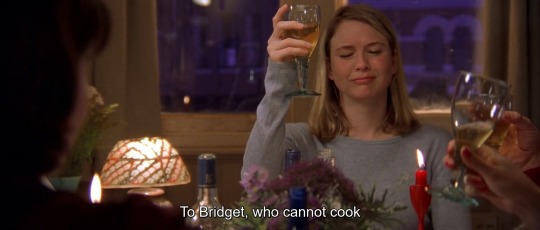




Bridget Jones's diary, 2001
#comedy#drama#romance#bridget jones's diary#sharon maguire#helen fielding#andrew davies#richard curtis#renée zellweger#colin firth#james callis#shirley henderson#sally phillips#celebration
10 notes
·
View notes
Text




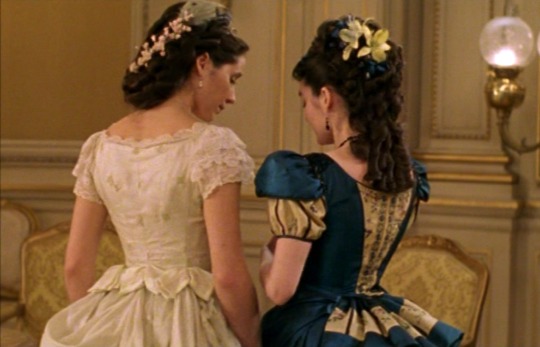
Shirley Henderson in The Way We Live Now (2001).
This is a really underappreciated mini-series.
Well made with great characters and good performances. Matthew Macfadyen is hilarious.
Half-mexican Paloma Baeza is stunning and excellent as Hetta Carbury. I focused on taking screenshots of Shirley Henderson though because I'm a little obsessed with her at the moment.
#shirley henderson#the way we live now#anthony trollope#trollope#andrew davies#matthew macfadyen#paloma baeza#sir felix carbury#hetta carbury#marie melmotte#lilo baur#beautyarchive edit
12 notes
·
View notes
Text



Pride and Prejudice (1995)
#pride and prejudice#pride and prejudice 1995#jane austen#tv series#miniseries#mini series#period drama#p&p 1995#p&p#costume drama#andrew davies#simon langton#bbc1#tv mini series
178 notes
·
View notes
Note
I once read a review of the Beckinsale Emma that described Raymond Coultyard as having little shark teeth, which made me LOL. In fairness, that IS kind of his vibe in the film.
I call him Frankin Churchillake, because he reminds me so much of 90s Justin Timberlake for some reason.
But yeah, I got the book of the Making of Emma, and Andrew Davies' quotes about the character are something:
"Frank Churchill, who is a total liar and someone you can trust only so far as you can throw"
"Frank Churchill is both disturbed and dangerous, in my view. His mother went and died on him and his father handed him over to his aunt, who has treated him appallingly, so he really has it in for women. He plays to them. I think he's a clever, dangerous misogynistic charmer -- dangerous because he's taken the trouble to work out how girls' mind work. He treats Emma badly, but he treats Jane worse because he is terrified of Jane's power over him. He just has to be in control of the game"
"He will flirt with other women, he will probably make love to a lot of other women, he will parade it, he will confess, he will expect to be forgiven, he will make her life a misery."
So, that explains a lot.
16 notes
·
View notes
Text

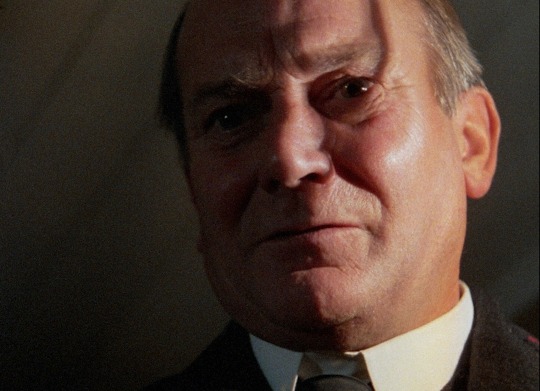

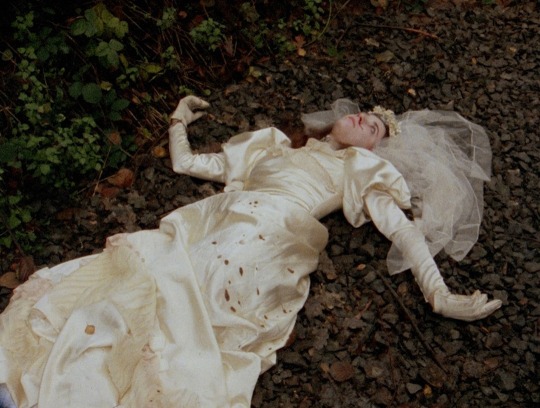




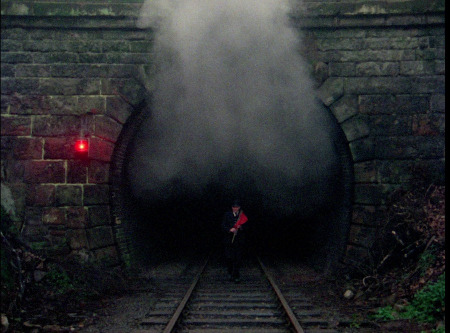
A Ghost Story for Christmas: The Signalman (BBC, 1976)
"The tunnel collision is the worst to be feared. Your nightmares would go hard to equal it. The wreckage becomes hideously compressed in the confined space. If fire breaks out, the tunnel and its ventilating shafts become furnace flues. You cannot see in the dark to get the wreckage and the bodies out. The screams of the injured and dying echo in a most... persistent way. It's the shape of the tunnel, you see, sir."
#a ghost story for christmas#the signalman#charles dickens#single play#horror tv#1976#bbc#classic tv#andrew davies#lawrence gordon clark#denholm elliott#bernard lloyd#reginald jessup#carina wyeth#rosemary hill#holds a very special place in my heart as not only the first of the LGC Ghost Stories i ever saw (a late night bbc repeat many years ago#and before they were all so readily available) but also as perhaps the first ghost story i ever read: i was gifted a book of ghostly tales#as a small child (a bizarre choice as i was a trembling flower of a child who feared absolutely everything) and i have never forgotten the#cover‚ an illustration of the titular signalman waving his flag in thick mist or smoke. it has remained a favourite tho‚ perhaps bc#it hits on some of my very favourite ideas and tropes in horror fiction: the self fulfilling prophecy‚ the inevitability of an event and#the echoes it casts‚ backwards as well as forwards; horror as a cycle or ouroboros‚ where the victim and the monster (for want of a better#term: the supernatural perhaps) are one and the same but the realisation comes too late. Davies' script works hard to pack a lot of this in#to a modest running time (a notable early work from him and one of his first adaptations of a victorian work‚ something that has become#in many ways the focus of his career and at which he truly excels). largely a two hander between Lloyd's well meaning skeptic and the#peerless Elliott as the troubled railwayman‚ but Clark is working as hard as ever to make the setting and the decor into just as vital#characters (could a more foreboding and significant looking train tunnel even exist? a spectacular find by someone at the bbc)#not perhaps the archetypal LGC ghost story for christmas (it's not a James story for a start) but a genuinely superlative example of#the ghost story as told for the medium of television.
5 notes
·
View notes
Text

I knew there was at least one "Jane Eyre" adaptation produced by BBC before the 1956 version (unfortunately there is no known copies of film and photos of it survived because telerecording shows was in primitive stage at the time) but I was more surprised that BBC had plans to release a new "Jane Eyre" adaptation in 1996 with the script written by the same guy who was involved in producing the famous "Pride and Prejudice" 1995 version but it was cancelled after they found out that ITV would have their own adaptation of the same title (the one we see these days). The info should be taken with the grain of salt but if that's true that would be a wasted potential.
Source: https://bronteblog.blogspot.com/2006/12/we-want-lucy-snowe.html?m=1
#jane eyre#charlotte bronte#jane eyre 1956#bbc#bbc jane eyre#jane eyre bbc#jane eyre 1997#andrew davies#pride and prejudice 1995#is it a bad idea to exchange the jane eyre 1997 version to see bbc's jane eyre 1996 version? the 1997 version is pretty good though#at least we got to see “the tenant of wildfell hall” 1996 version eventhough some parts of it are quite lackluster
5 notes
·
View notes
Text
"THE FUGITIVE" (1993) Review

"THE FUGITIVE" (1993) Review
During a period between the late 1980s and the 2000s, Hollywood released a good number of film adaptations of successful or not-so-successful television shows. This is ironic, considering the television industry tend to do the opposite. One of those film adaptations of TV shows happened to be the 1993 action thriller, "THE FUGITIVE".
Based on the ABC 1963-1967 television series that starred David Janssen, "THE FUGITIVE" told the story of prominent Chicago vascular surgeon Dr. Richard Kimble, who is accused and convicted of murdering his wealthy wife. The movie began with Kimble arriving home from a fund-raising event and later, a surgery, to find his wife murdered. He then struggled with her killer, a one-arm man who yet to make his escape. Despite his efforts to inform the Chicago Police about the one-arm man, the latter charged Kimble with his wife's murder. Following his conviction and death sentence, Kimble found himself being transported to prison on a bus. A few of Kimble's fellow prisoners attempted an escape. In the pandemonium, two prisoners and the driver were killed; and the bus rolled down a ravine and into the path of an oncoming train. Kimble saved a guard, escaped the on-coming collision, and fled as the train derailed. Hours later, U.S. Deputy Marshal Samuel Gerard and his colleagues arrived at the crash site and launched a massive manhunt that started in the Illinois countryside ended up back in Chicago. Upon his arrival in the city, Kimble started his own manhunt for his wife's one-arm killer.
I have never seen the 1963-1967 series that starred David Janssen. But I have heard and read so much about it over the years. I am aware of a few differences between the series and the movie. Whereas the latter began with Helen Kimble's death, the television series began with Kimble already on the run for six months. Sam Gerard was a U.S. Marshal in the film. Philip Gerard was a local police detective, obsessed with finding Kimble. Which made me wonder how he was able to track Kimble all over the country for four years without losing his job. The television series featured members of both Kimble and Gerard's families, whereas the movie only featured the pair's colleagues - past and present. And so on.
After years of watching movies, I came to the realization that I have never seen a perfect movie. "THE FUGITIVE" was certainly not one. As much as I like the Richard Kimble character, there were times when he came off as a little too ideal for my taste. He came dangerously close to being a Gary Stu - especially in those scenes featuring Gerard and his team's interrogations of Kimble's old medical colleagues. How can I put this? The Richard Kimble character struck me as so ideal that in the end, he did not really develop as a character. How could he? He seemed so perfect from beginning to the end. Unlike his television counterpart, the cinematic Kimble was also blessed with a happy marriage before her death. Kimble's counterpart was the U.S. Marshal Sam Gerard. Unlike Kimble, Gerard proved to be a more complex character who possessed a ruthless streak that bordered on brutality sometimes. Especially when it came to the welfare of the deputy marshals assigned to his team. He also possessed a sharp wit that blended with sarcasm. But like Kimble, Gerard also possessed an unrelenting steak that leads him to maintain focused on his goal. And like Kimble, Gerard never really developed as a character. Now many might find my last observation hard to swallow, considering that Gerard realized that Kimble was an innocent man. So what if Gerard had finally realized that Kimble was innocent? He was never the investigator for the Kimble case in the first place. Gerard's task was to simply hunt down Kimble, who was a fugitive of the law, and return him to jail. Which he did in the end. Only he learned that Kimble was an innocent man along the way. But this discovery did not change or develop his character. After all, it was up to the Chicago Police to realize Kimble was innocent. Yet, the two original police investigators had refused to acknowledge Kimble's innocence and their mistake right up to the bitter end.
Also, a part of me wondered whether Richard Kimble or his wife Helen had relatives in Chicago. My one last complaint about "THE FUGITIVE" centered around at least two action sequences. One involved the collision between the prison bus conveying Kimble and a freight train. I was amazed that so many of the occupants inside that bus managed to survive, especially Kimble who had lingered inside longer to care for a wounded prison guard. The other action sequence that left me scratching my head was Kimble's swan dive from a dam spillover. Perhaps it was plausible for him to survive such a dive. Unfortunately, I cannot see that happening . . . even to this day. I wish that screenwriters Jeb Stuart and David Twohy, along with Andrew Davies, had used another way for Kimble to evade Gerard. Something a bit more plausible.
For a movie based on an old television series from the 1960s, "THE FUGITIVE" proved to be first-rate. That is correct. I enjoyed this film very much. In fact, I more than enjoyed it. I thought Stuart, Twohy and Davies had created a very satisfying movie filled with top-notch action, a solid mystery involving the killer's identity, intelligence and deep emotion.
Although I believed the sequences featuring the prison bus/train collision and Kimble's leap from a dam spillover bordered on the implausibility, I certainly had no problems with the film's other action sequences. In fact, I especially enjoyed three in particular - the chase sequence through downtown Chicago on St. Patrick's Day, Kimble's encounter with the one-arm man aboard a Chicago El-train and especially the final sequence that featured both Kimble and Gerard's confrontation with the real culprit behind Helen Kimble's murder. Andrew Davis did a great job in directing these sequences, filling them with breathless tension.
The 1960s television series had mainly focused on Kimble evading the police and finding the one-arm man's whereabouts. I had no problems with this. Once the cinematic Kimble had made his way back to Chicago, he started off doing the same. But thanks to screenwriters Jeb Stuart and David Twohy, the film featured an additional twist that allowed the one-armed killer to be a part of a bigger conspiracy involving a pharmaceutical company and new drug called Provasic that Kimble had failed to approve, because it caused liver damage. During Kimble's search for the one-armed man and his investigation of the mystery behind his false conviction, I felt pleased that the movie also delved into his continuing grief over his wife's death via flashbacks. These brief moments reminded audiences that Kimble was more than an action man trying to prove his innocence. He was a man still grieving over the death of his wife. Another aspect of "THE FUGITIVE" was its portrayal of Tommy Lee Jones and his team of U.S. Marshals. Unlike the ABC series, which almost portrayed the Philip Gerard character as a modern version of Inspector Javert of "LES MISERABLES" in Les Misérables - relentless and obsessive in pursuit of his prey; U.S. Marshal Sam Gerard seemed to lack the obsession of his television and literary counterparts. Which I personally found refreshing. Well, Gerard is relentless in this film, but only in a cool and professional manner. And thanks to Stuart and Twohy's screenplay, along with Tommy Lee Jones' performance, Gerard conducted his assignment with a dry and sarcastic wit.
I might as well discuss the cast's performances. What can I say? There did not seemed to be a false step among any of them. The movie boasted some first-rate supporting performances from the likes of Ron Dean, Joseph Kosala, Nick Searcy, Eddie Bo Smith, Dick Cusack, David Darlow, Kirsten Nelson, Neil Flynn, Andy Romano and Richard Riehle. This movie marked the first time I saw Julianne Moore in any motion picture, and I thought she gave a sharp performance as a hospital physician nearly overwhelmed by a crisis. Both Jane Lynch and John M. Watson Sr. seemed equally sharp as two of Kimble's colleagues and closest friends. In her few scenes, Sela Ward radiated warmth and wit as Kimble's loving wife and murder victim, Helen Kimble. It seemed a pity that she was not featured in more scenes. Andreas Katsulas gave an intelligent, yet sinister performance as Fredrick Sykes aka the One-Arm Man and Helen Kimble's killer. Jeroen Krabbé portrayed another one of Kimble's friends and colleagues, Dr. Charles Nichols, who also believed in the former's innocence. Krabbé injected a "proud father" aura in his performance, as he needled the U.S. Marshals for their failure to capture Kimble and come to the realization of the latter's innocence. I found this aspect of Krabbé's performance very subtle and very entertaining. For me, one of the most entertaining aspects of "THE FUGITIVE" proved to be those who portrayed the deputy marshals who formed Gerard's team. I am referring to L. Scott Caldwell, Daniel Roebuck, Tom Wood, Johnny Lee Davenport and especially Joe Pantoliano. Not only did I enjoy the wit and humor that permeated their interactions with each other, but I also enjoyed their interactions with Tommy Lee Jones' Gerard. In fact, Jones and Pantoliano's scenes proved to be so funny that it seemed as if they had created some kind of comedy team.
I realized I had been a little critical of the Dr. Richard Kimble and U.S. Deputy Marshal Sam Gerard characters. And I stand by my criticism. But I cannot do the same about the two actors that portrayed them. I believe Harrison Ford gave one of his career best performances as the beleaguered surgeon who found himself convicted of murdering his wife. Ford did an excellent job of conveying not only Kimble's grief over his wife's death, but also his desperation to evade the police and U.S. marshals searching for him, and the character's intelligence, while he investigates the one-arm man and the latter's motive behind Helen's death. Sam Gerard seemed like a different kettle of fish in compared to Richard Kimble and Tommy Lee Jones' portrayal of the colorful lawman proved to be one of the film's highlights. Jones managed to infuse a great deal of energy into Gerard's determined search for Kimble, without transforming the character into a copycat of the Javert character from "Les Misérables". Jones' Gerard is a tough and no-nonsense man who would ruthlessly defend members of his team and his slightly extreme form of law enforcement. I am not surprised that Jones managed to snag both acting nominations and awards for his portrayal of Gerard. However, I am astounded that Ford was never nominated.
One can tell how good a movie after so many years had passed. Twenty-nine years have passed since the release of "THE FUGITIVE". It might have a few flaws, but I believe it still holds up after so long. I also believe the movie proved to be just as superb as the 1960s television series it was based on. One can thank Andrew Davis for his energetic and intelligent direction, Jeb Stuart and David Twohy's excellent screenplay; and the superb cast led by Harrison Ford and Tommy Lee Jones.

#the fugitive#the fugitive 1993#harrison ford#richard kimble#tommy lee jones#andrew davies#joe pantoliano#jeroen krabbé#julianne moore#l. scott caldwell#jane lynch#andeas katsulas#daniel roebuck#nick searcy#richard riehle#ron dean#sela ward#joseph kosala#eddie bo smith#dick cusack#david darlow#kirsten nelson#neil flynn#andy romano#tom wood#johnny lee davenport#john m. watson sr.
2 notes
·
View notes
Text
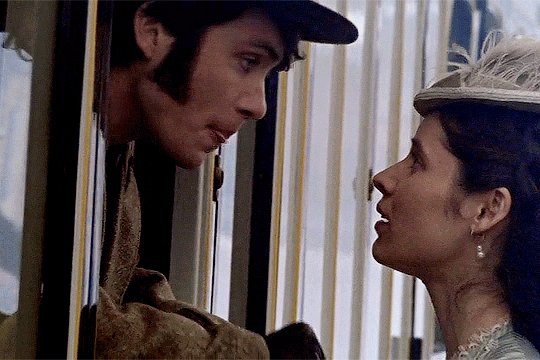
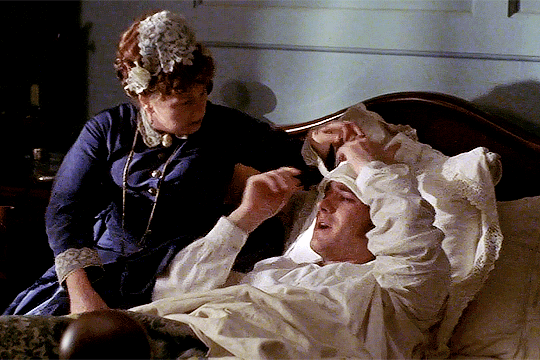
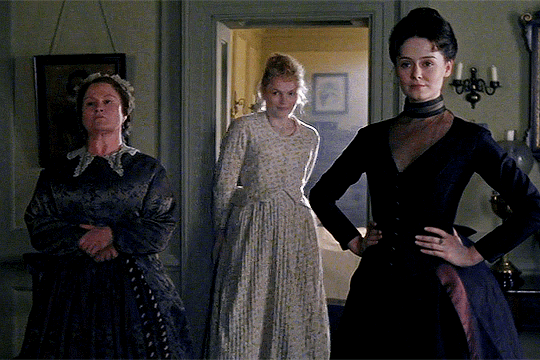
I am entertained 👏🏽
#the way we live now#matthew macfadyen#cillian murphy#anthony trollope#paloma baeza#miranda otto#maxine peak#michele dotrice#david suchet#david yates#andrew davies#cheryl campbell
12 notes
·
View notes
Text
Tom Burke's Dolokhov making out with Paul Dano's Pierre in War and Peace (2016) traumatised me.
31 notes
·
View notes
Text
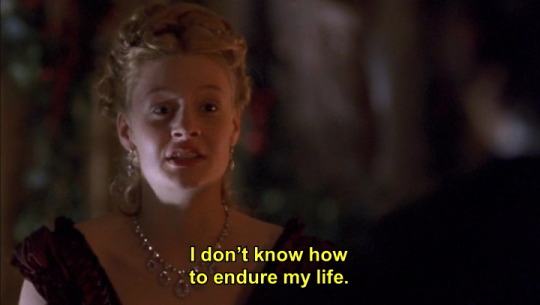


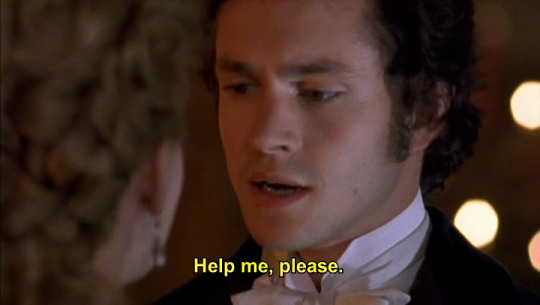


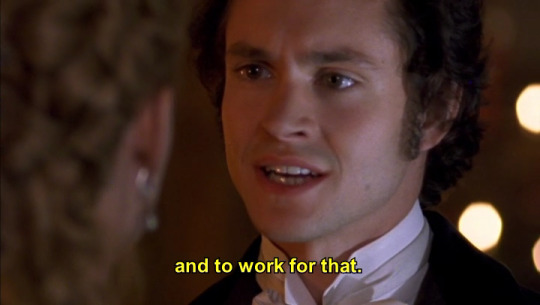

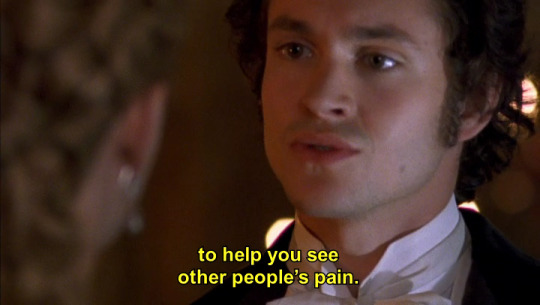
Daniel Deronda, 2002
47 notes
·
View notes
Text
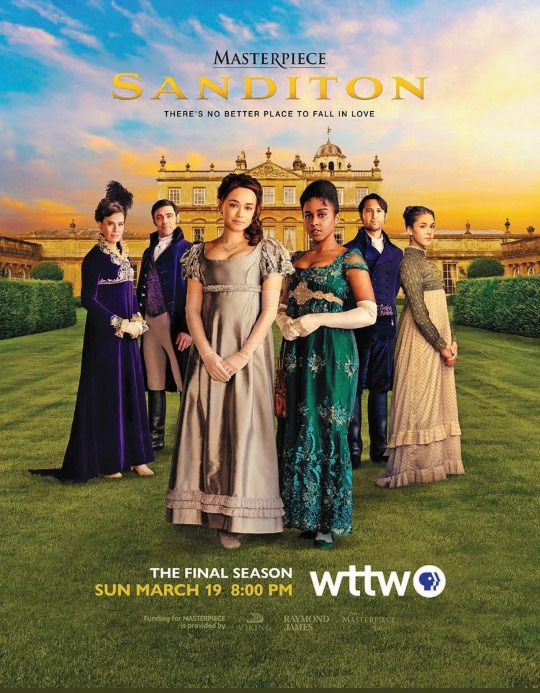
What I'm watching (2023 Edition) || Sanditon - Series 3 (2023)
#sanditon#watching#watching23#Andrew Davies#jane austen#Sophie Winkleman#Liam Garrigan#Rose Williams#Crystal Clarke#Ben Lloyd-Hughes#Eloise Webb#britbox#pbs#itv
3 notes
·
View notes
Text
An In-Depth Guide to Les Mis Adaptations (Part 2)
[part 1]
3. 1998 film

I held a fervent hatred for this adaptation until I saw the 1935 version. In contrast, the 1998 film starring Liam Neeson, Geoffrey Rush, Uma Thurman and Claire Danes is almost passable.
The political thesis of this film is not as heinous, but that is because it is barely present. Conflating Marius and Enjolras has never been more discordant than in this adaptation. Hugo deals in symbols– when characters are cut, the themes they represent are removed as well. Without Enjolras (who is present but only as Marius’ friend) and to an extent Gillenormand, Marius has no conviction, nor does his story have any stakes. He preaches about freedom and suffrage, but is non-committal towards pursuing it. Marius abandons his role as ‘leader of the ABC Society, the largest and most dangerous of the student groups’ to make out with Cosette on a bench in the middle of a public street. He abandons the barricade immediately after it is erected to find Cosette again. Making one character the romantic hero and the leader of a rebellion results in neither.
Valjean's being religious manifests in puritanism. He is violent and sexist, far beyond the baseline for a man living in the 1800s. To me, he challenges just how much toxic masculinity a character could embody while still being someone the 90s audience could presumably root for. Hugo’s character is kind first and foremost, someone that has no urge to raise a hand to even an attempted murderer. Neeson’s Valjean punches Bishop Myriel in the face, beats Javert until he is unconsious, slaps his adoptive daughter across the face, and skips merrily away after Javert’s suicide.
Javert on the other hand is very well portrayed by Geoffrey Rush. He follows the law to the letter, and shapes his morality around its absolutism. He is as harsh towards himself for his misdeeds as he is towards those he condemns. He accuses Valjean of ‘[destroying] justice’, but acquiesces to his mayoral authority. He observes other hedonistic police officers with distaste but occasionally submits to his one vice, snuff.
The 1998 film is an improvement upon the 1935 film in its depiction of poverty, but actively worsens any sexism present in the novel. Fantine before and after her unemployment is contrasted visually, and we get the sense that Cosette is the only thread keeping her alive. She does not retain any of her fortitude however, offering her ‘services’ to her landlord and Valjean, with an implied romantic attraction for the latter. Éponine is absent, and so too are her thematic ties (though little brother Gavroche makes an appearance). I cannot stress enough that this Valjean hit Cosette. At least she gets to pull a gun on Javert. Female empowerment!
This is a film that wants to be a dramedy. There is a ‘good cop’ character to offset Javert’s severity and suggest that most cops are alright actually. Before Valjean revealed his identity in the trial of his doppelganger, the latter did a stand up routine that had the open court in stitches, which could have been a comment on the rich treating the poor as entertainment but was never followed up on. This is a film that thinks it made improvements upon Hugo’s story. Valjean tells his life story to Cosette with barely any qualms, contradicting the novel's ending. Instead of the candlesticks, this adaptation created another recurring object– a carved pendant that Fantine held onto despite her destitution to one day give to Cosette. Like the film, it is pretty, but pretty aimless.
2. 2018 miniseries

The most recent adaptation, the BBC miniseries, is full of high highs and low lows depending on screenwriter Andrew Davies’ whims. He somehow managed to adapt parts of the book no previous English production had had before to great effect, while completely misunderstanding fundamental parts of the story that ought to be common knowledge to anyone familiar with the source material.
Let’s get the bad parts out of the way. The most glaring issue with this adaptation is the characterisation of David Oyelowo’s Javert. He did his damndest with the script he was given, but there is no other way to read him but a villain. What is so fascinating about Javert as an antagonist is his sense of duty and rigid adherence to the law, his ‘villainy’ coming to pass due not to personal evil, but the inherent corruption of the legal system. Davies’ Javert is obsessed with ‘winning’ against Valjean to the point of hilarity. He is unconcerned with upholding the law’s justice– he openly threatens Valjean while he was mayor and is barely seen doing any police work. He rants and raves about Valjean ‘laughing at him’ while barricades are being erected all around Paris, while his ‘good-cop’ colleagues look upon him in disbelief. Davies described Javert’s obsession with Valjean as a ‘perverse, erotic love’. Aside from completely missing the point of Javert’s role in the story, it is hardly a stretch to point out the homophobia underlying such a portrayal.
Valjean’s characterisation is not that much better. Hugo’s Valjean was resentful of society but had always been selfless– his initial crime was stealing a loaf of bread for his sister’s starving children. Davies’ Valjean never had a compassionate nature to reinstate, nor did he turn a new leaf as implored by the Bishop in 1815. Throughout the rest of his story his sole motivation was unprocessed guilt. He confessed to his true identity in 1823 after being burned by the coin he stole from Petit Gervais years ago rather than in concern for the suffering of his doppelganger or the people under his care; he saved Marius in 1832 after he fought with Cosette rather than of his own volition. 17 years on, he still flashes back to Fantine calling him a monster, because even he does not believe he has honoured her memory.
Undue ‘sexing up’ of the story is a common criticism of the series that I believe is entirely warranted. The promise of giving Fantine a backstory involved a nauseating amount of Tholomyès instead of showing her strength as a single mother. Her losing her job at the factory to selling her hair and teeth and body, happened just as lightning-fast as every other adaptation when it took place over years in the novel. It is a shame that the only non-musical portrayal of Éponine is so abysmal. Not only does Davies write Éponine, Marius and Cosette as a love triangle, he perpetuates the Madonna-Whore Complex while doing so. Preceded by a visit to a brothel, Marius has a sex dream about Cosette and Éponine, where the former transforms into the latter as soon as she starts undressing. Davies’ Marius is attracted to both women, but his attraction to Cosette was portrayed as pure and chaste, whereas he was seduced by Éponine’s feminine wiles. This entire sequence of events has no basis in the novel and is a complete invention by Davies, who said ‘the women in this book are not terribly complicated’. Bold words from a man who erased all of Fantine, Cosette and Éponine’s narratives that were separate from the men in their lives.
Welcome in the miniseries was the focus afforded to tertiary characters who were only able to appear given the 6+ hours runtime. Sister Simplice was the only person aside from Valjean to have known Fantine and watched Cosette grow up. With the inclusion of Waterloo where Thénardier ‘saved’ the elder Pontmercy as he robbed him, Marius’ internal conflict could be played out in his repeated attempts to rob Valjean. Thénardier is not just comic relief nor is he just evil (though he is certainly evil, admitting to following the lucrative slave trade to the New World), criminality is a way of life he shares with many as the economy declines. We get an explanation for Marius’ political views– he was raised by his grandfather Gillenormand, a staunch royalist who barred him from seeing his father, a colonel in Napoleon’s army. No other adaptation gave it as much weight that Marius joined the republican barricades on a suicide mission rather than a genuine belief in the cause. Mabeuf, who told Marius of his father and died at the barricade despite being apolitical all his life, is given his due. In fact, the revolutionaries exceeded expectations. The lead up to the barricades was properly built up, including the women’s and workers’ places within it. The levity in their cafe meetings is contrasted with their desperation in the thick of the fight, and the heartbreaking mantra that ‘this is history’ as they face death with smiles on their faces.
It is commendable that this adaptation contained the most racially diverse cast yet. However Javert, who is a much worse person than in the novel, is the only character played by a dark-skinned Black person. Thénardier, the other main antagonist, is played by a man of colour. I’ll leave you to draw your own conclusions.
The miniseries hit the important plot notes despite keeping social justice at arm's length. There was so much potential in its miniseries’ longer, chronological format. At the end of 6+ hours, we are left with the image of starving children. In aiming for a gritty, realistic version of Hugo’s symbolic, capital ‘r’ Romantic novel, it missed the mark.
[part 3]
[x]
#les miserables#les mis#barricade day#long read#les mis 1998#les mis 2018#bbc les mis#waffle#victor hugo#bbc les mis is both better and worse than i remembered! it really would have been sofucking good but alas we cant have nice things#before fantine died in 98 i thought that ver was better than i rmbed but it quickly noped#98 javert is truly underrated tho#mine#i wrote this#joseph quinn#Liam neeson#uma thurman#Dominic west#Andrew Davies
23 notes
·
View notes